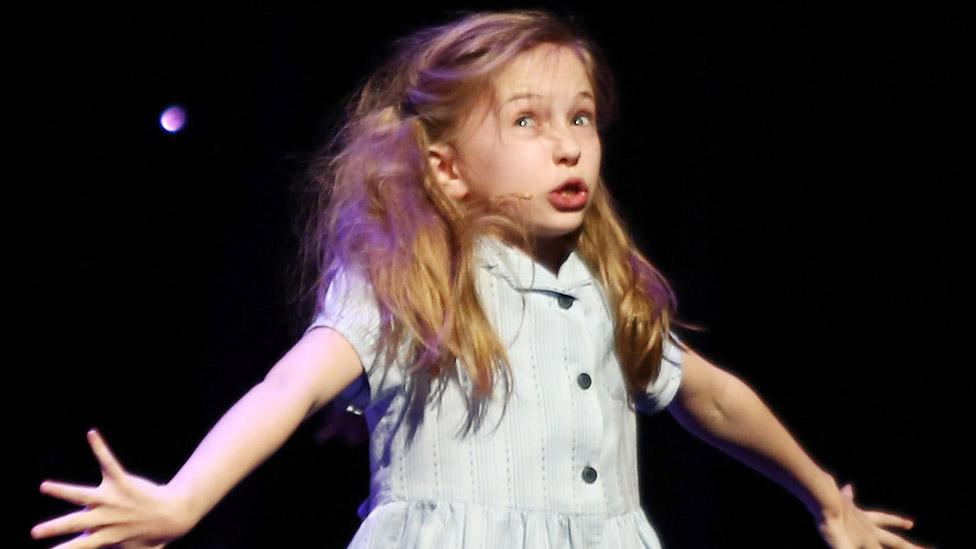Netflix staff protest against 'transphobic' Dave Chappelle show
- Published
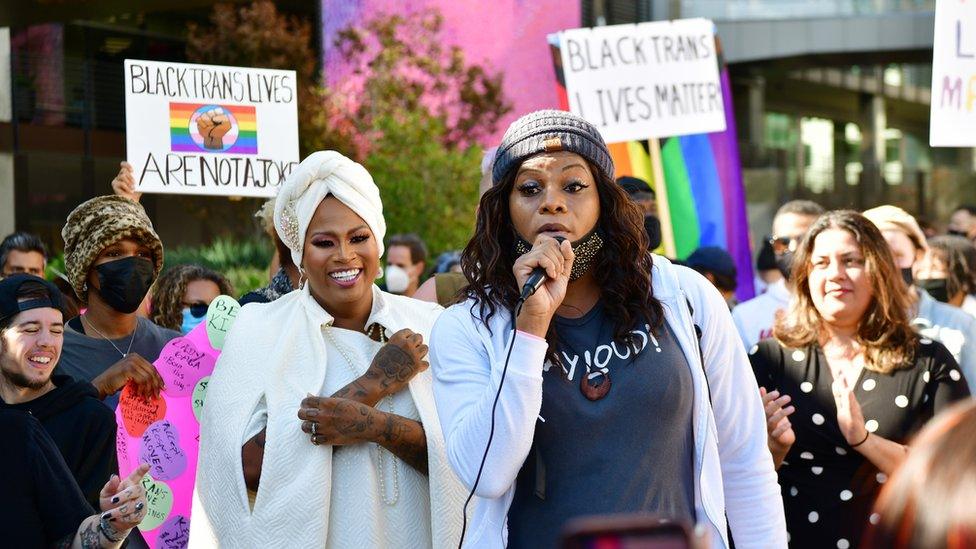
Stars including Blossom C. Brown took part in Wednesday's protest
About 100 people have protested outside Netflix's headquarters over the airing of a comedy special by Dave Chappelle, which they say was transphobic.
Netflix staff and transgender activists staged the walkout outside the streaming giant's Los Angeles offices.
Demonstrators called on Netflix to fund more trans and non-binary talent, and other measures to avoid "transphobia and hate speech".
Ahead of the rally, Netflix issued a statement in support of the activists.
A video was also released featuring several Netflix stars, including Queer Eye's Jonathan Van Ness and The Good Place actress Jameela Jamil, thanking people for taking part in the demonstration.
Other LGBT celebrities, including Elliot Page and Lilly Wachowski, voiced their support on social media.
Netflix has been mired in controversy over The Closer, in which stand-up comedy star Chappelle says "gender is a fact" and that LGBT people are "too sensitive".
Chappelle has laughed off the backlash, recently saying: "If this is what being cancelled is about, I love it."
Netflix staff called for the rally, though it is unclear how many of those employees were among the protesters outside the offices.
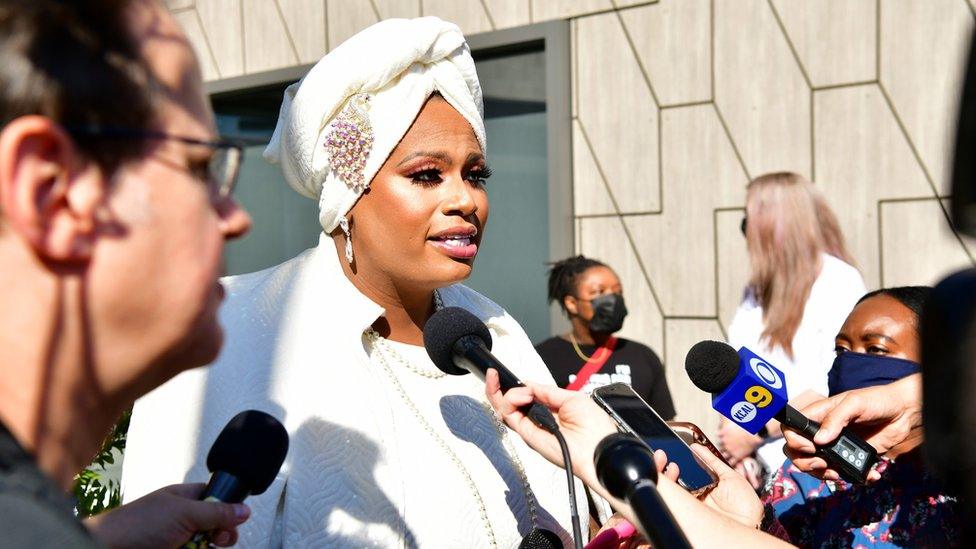
Protest oganiser Ashlee Marie Preston said she was concerned trans-related jokes "are taking lives"
"We are here today not because we don't know how to take a joke. We're here because we're concerned that the jokes are taking lives," said rally organiser Ashlee Marie Preston in an interview with AFP news agency.
She accused companies like Netflix of "[capitalising] off of tension" and using "algorithmic science to manipulate and distort our perceptions of ourselves and one another".
Forty-four transgender people were killed in the US last year, according to Human Rights Watch, a non-governmental organisation.
Netflix's Chief Content Officer Ted Sarandos previously defended the firm's decision to air the programme.
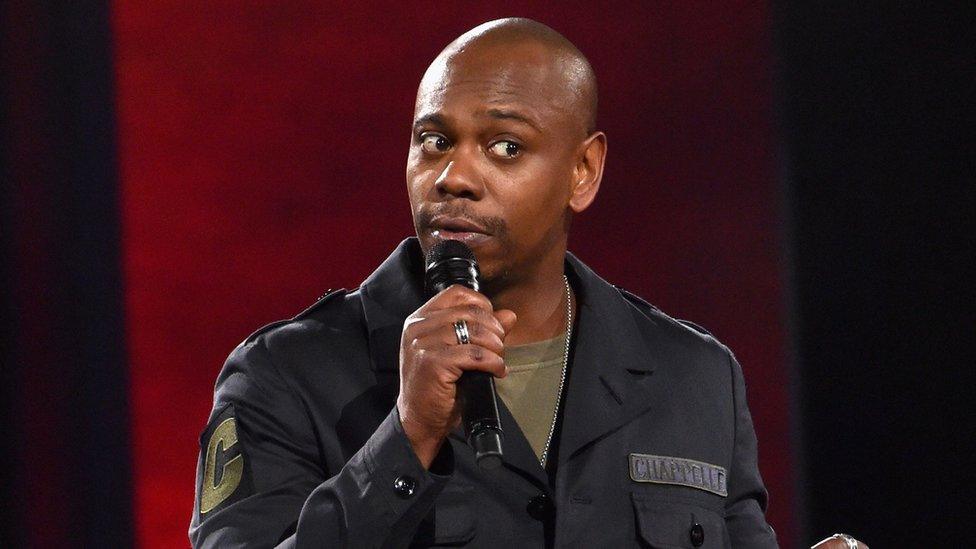
Dave Chappelle has laughed off the controversy
In a leaked staff memo, he insisted that "content on screen doesn't directly translate to real-world harm", and emphasised the importance of defending "artistic freedom".
But in a later interview with Hollywood trade publication Deadline, Mr Sarandos said he "screwed up the internal communication".
"I should've made sure to recognise that a group of our employees was hurting very badly from the decision made," he added.
"I respect them deeply, and I love the contribution they have at Netflix. They were hurting, and I should've recognised that first."
The protest comes a day after Netflix reported record subscriber numbers of 213.5 million globally.

What Big Tech is really worried about

Some Silicon Valley companies have an annual revenue equivalent to the GDP of a mid-sized country.
They have incredible influence across the world.
And yet, broadly, there's little accountability for the actions they take.
And they would argue why should there be? They're companies not governments.
That's why these kinds of walkouts are so interesting. Employees do have the ability to focus minds in Silicon Valley.
There have been many walkouts over the years, including at Google and Microsoft.
The key issue here is that Big Tech execs are deeply worried about collective action.
Forget fuzzy words about making the world a better place, they are companies that have shareholders who want to make money.
If workers are dissatisfied, walk out, (or worse) organise - that could be bad for the company's bottom line. That's when they take note.
Netflix has faced much criticism for airing Chappelle's routine. However, it's criticism from their own workers - and the bad press it has generated - that the company will listen to most closely.
Related topics
- Published15 October 2021
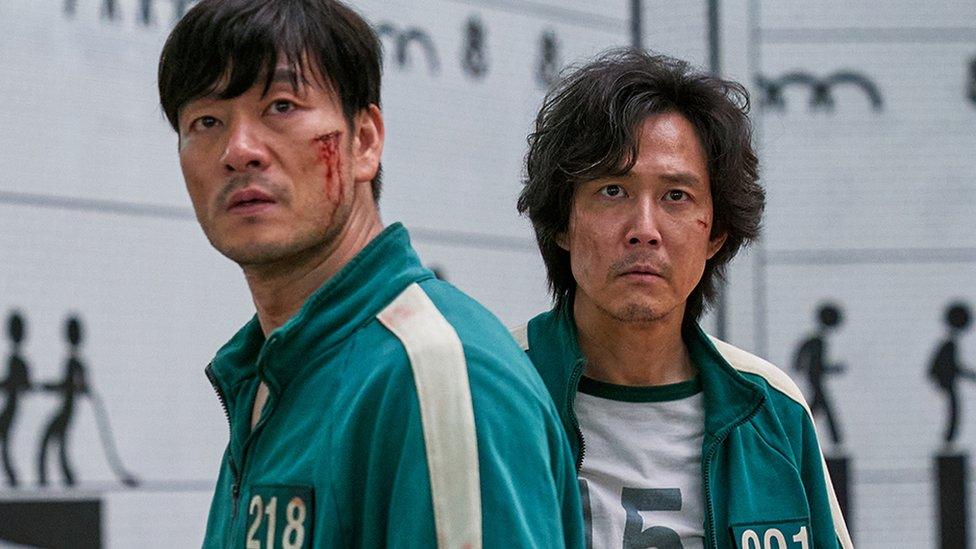
- Published4 October 2021

- Published22 September 2021
